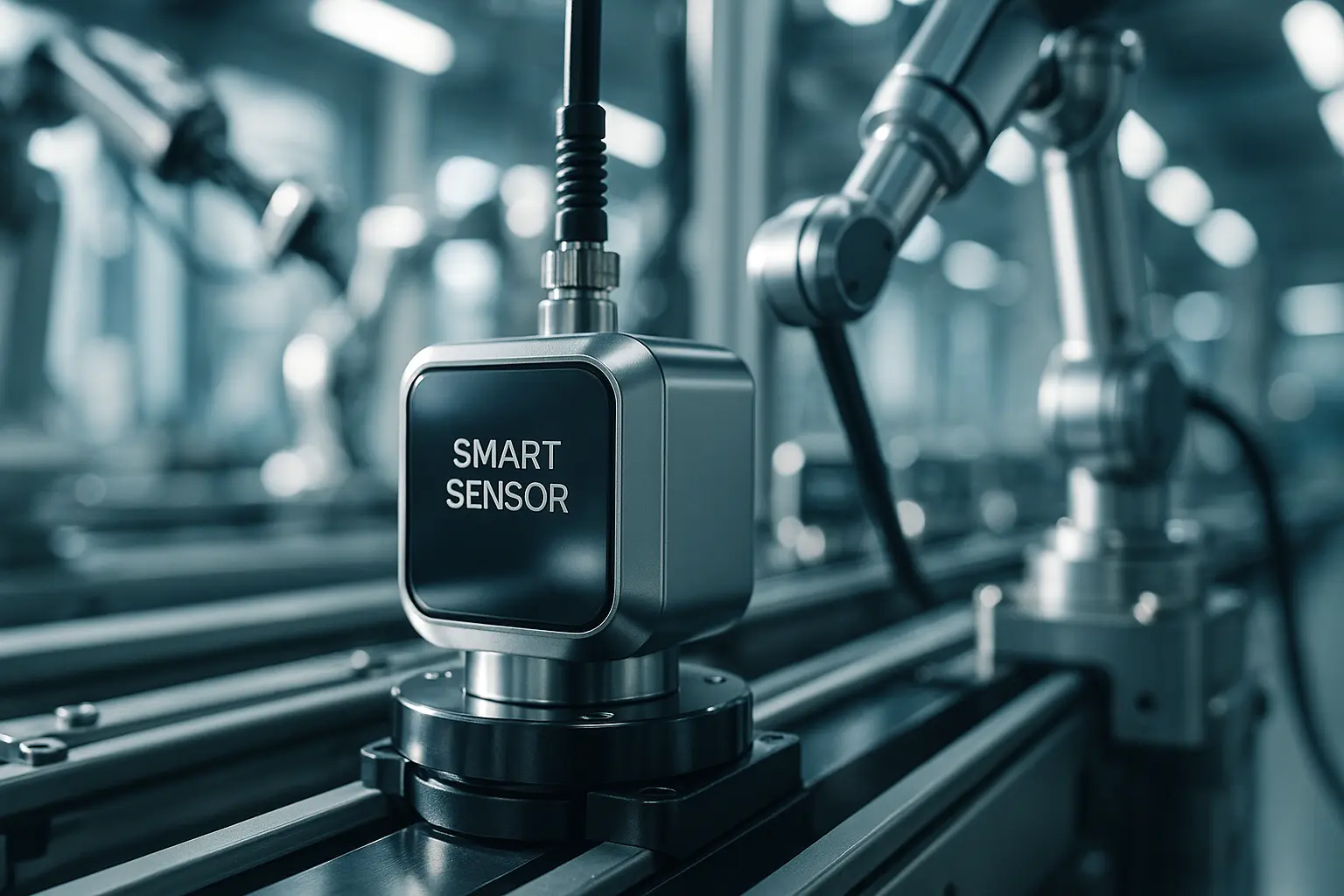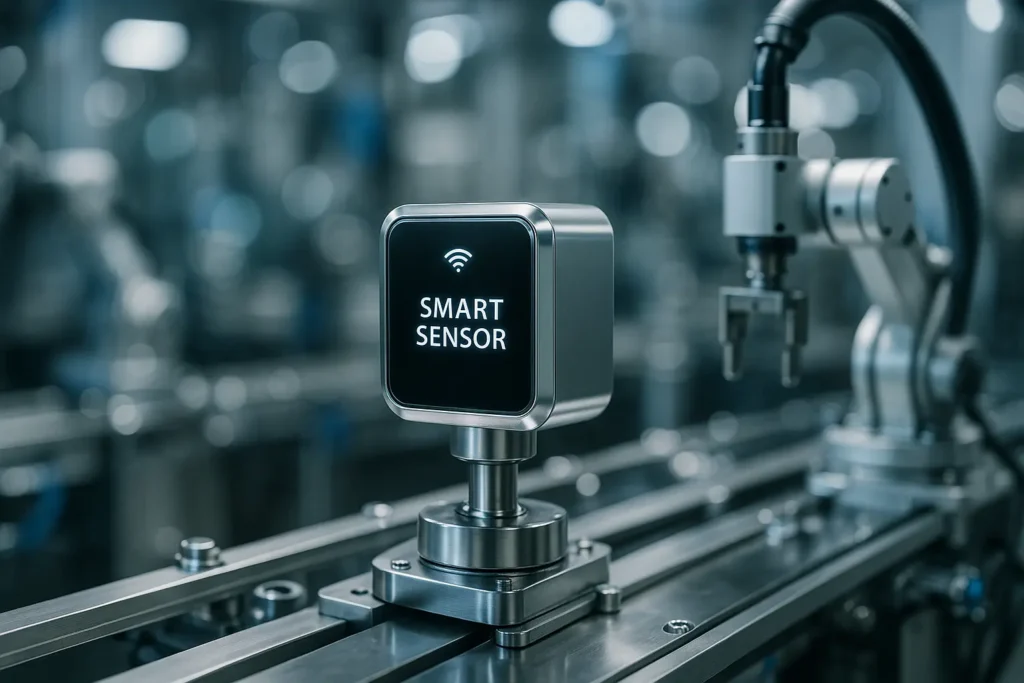In the hustle and bustle of today’s fast-paced industrial landscape, the emergence of smart sensors is nothing short of revolutionary. As we navigate the digital age, the Internet of Things (IoT) lures us with promises of heightened efficiency, reduced downtime, and unparalleled quality control. But, what makes smart sensors so crucial in the realm of modern manufacturing? Let’s embark on a journey to unravel this innovation that redefines our production lines and unearths potential we never imagined.
The Role of Smart Sensors in Data Collection
The digital tide has swelled, enveloping our industries in a sea of data. At the heart of this revolution lies the smart sensor, constantly transmitting a plethora of real-time data. These sensors are the sentinels of our production ecosystems, offering a lens into the very soul of our equipment and systems.
Seamless Data Flow: Gone are the days when data was hoarded and accessed sporadically. Today, smart sensors ensure a continuous data stream, providing an unbroken narrative of our manufacturing process. This real-time monitoring allows us to anticipate and circumvent potential issues, minimizing downtime and maximizing efficiency.
Precision and Accuracy: In an industry where the slightest deviation can lead to catastrophic outcomes, the precision of smart sensors is indispensable. These devices offer unmatched accuracy, ensuring that each process aligns with our standards and expectations. Whether it’s maintaining the perfect oven temperature in a food plant or ensuring exact chemical ratios, smart sensors are the unsung heroes maintaining our quality benchmarks.
Integration with IoT: Perhaps the most significant advantage of smart sensors is their seamless integration with IoT systems. This synergy allows for advanced analytics, enabling predictive maintenance and proactive quality control measures. With this integration, our facilities can transition from reactive to predictive modes, ensuring that our production lines run smoothly and efficiently.
Enhancing Safety and Maintenance through Technology
Safety in the industry is paramount. Implementing smart technology not only channels our focus on quality but also emphasizes safety. In environments where human oversight isn’t always feasible, smart sensors stand as vigilant guardians of our workspaces.
Proactive Maintenance: Smart sensors provide early warnings of equipment wear and tear. By detecting anomalies, they allow us to perform maintenance before issues escalate, thereby reducing unexpected downtimes and repair costs. This foresight leads to a longer lifespan of machinery and a safer working environment.
Safety Enhancements: With smart sensors, safety protocols can be automated and monitored in real-time. These sensors can alert us to hazardous conditions such as gas leaks, abnormal vibrations, or temperature spikes, ensuring immediate response and mitigating risks.
Operational Efficiency: Intelligent control systems enable manufacturing units to optimize their operations. By providing constant feedback on operational status, smart sensors facilitate quick adjustments, ensuring that every aspect of the production process is running at optimal safety levels. This not only protects our workforce but also ensures that our products meet the highest quality standards.

Driving Transformation in the Food Industry
The food industry presents a unique set of challenges where quality control is non-negotiable. In this sphere, smart sensors are game-changers, revolutionizing how we monitor and maintain standards.
Precision in Monitoring: Smart sensors are pivotal in maintaining the integrity of food products. They ensure that parameters like temperature, humidity, and pH levels are within safe limits. This real-time monitoring guarantees that products are safe for consumption, adhering to stringent regulatory requirements.
Reducing Wastage: By detecting potential bottlenecks and inefficiencies, smart sensors play a significant role in reducing food waste. They enable manufacturers to streamline processes, minimize spoilage, and ensure freshness from farm to table.
Enhancing Traceability: In an era where consumers demand transparency, smart sensors offer a competitive advantage. They provide detailed records of every stage in the food production process, enhancing traceability and accountability. This ensures that, in the unfortunate event of a recall, affected products can be quickly identified and removed from circulation, safeguarding public health.
Conclusion: A Connected Future Awaits
As we stand on the brink of a new era in quality control, the role of smart sensors is undeniable. They are not merely tools of the trade but are becoming the backbone of modern industry, heralding a future where technology empowers us to achieve unprecedented levels of efficiency, safety, and excellence. With every device, every system, and every piece of equipment communicating in unison, our vision for a connected production environment is no longer a distant dream but a tangible reality. Together, as we embrace this transformation, we edge closer to a world where the possibilities are as limitless as the data we harness.
FAQ
What are smart sensors and how do they enhance quality control in manufacturing?
Smart sensors are advanced devices capable of detecting and processing various environmental inputs like temperature, pressure, or motion. They enhance quality control by providing real-time data and insights, allowing for immediate adjustments in the manufacturing process to maintain product standards.
How do smart sensors contribute to reducing production costs?
Smart sensors streamline the production process by minimizing human error and reducing waste. Their ability to continuously monitor and adjust manufacturing parameters ensures that resources are used efficiently, leading to cost savings in material and labor.
In what ways do smart sensors improve product consistency and reliability?
By continuously monitoring production conditions and automatically adjusting them when necessary, smart sensors ensure that each product meets the desired specifications. This consistency reduces the likelihood of defects and enhances the overall reliability of the final product.
What role do smart sensors play in predictive maintenance?
Smart sensors collect and analyze data related to machine performance and health. This information is used to predict potential failures before they occur, allowing for timely maintenance. This proactive approach reduces downtime and extends the lifespan of equipment.
Are there any challenges associated with implementing smart sensors in quality control systems?
While smart sensors offer numerous benefits, challenges include the initial cost of installation, integration with existing systems, and the need for skilled personnel to manage and interpret the data. Overcoming these challenges requires strategic planning and investment in training and technology.



